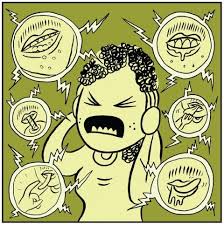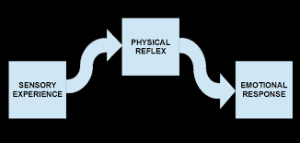How Is Misophonia Diagnosed?
 It’s good to see that more people – including medical specialists – are starting to pay attention to misophonia, as the number of people who appear to be suffering from the condition seems to be quite large at this point. It’s a relatively new entry in the world of medicine, and while it’s still confusing to some physicians, others have started to treat it with a much more serious attitude and have established standardized diagnosis procedures to help people deal with their misophonia.
It’s good to see that more people – including medical specialists – are starting to pay attention to misophonia, as the number of people who appear to be suffering from the condition seems to be quite large at this point. It’s a relatively new entry in the world of medicine, and while it’s still confusing to some physicians, others have started to treat it with a much more serious attitude and have established standardized diagnosis procedures to help people deal with their misophonia.
Know Your Triggers in Advance
 The most important thing when dealing with misophonia is to be aware of what exactly triggers the condition in you, and how frequently this typically happens in your daily life. Going to a doctor won’t help you much when all you can say is “certain sounds make me feel discomfort”, so you’ll need to be able to specify exactly what those sounds are and what circumstances you typically hear them in. With a well-tracked history, a physician should have a much easier time pinpointing misophonia as your exact specific problem.
The most important thing when dealing with misophonia is to be aware of what exactly triggers the condition in you, and how frequently this typically happens in your daily life. Going to a doctor won’t help you much when all you can say is “certain sounds make me feel discomfort”, so you’ll need to be able to specify exactly what those sounds are and what circumstances you typically hear them in. With a well-tracked history, a physician should have a much easier time pinpointing misophonia as your exact specific problem.
Keep a List of Physical Responses
Likewise, make sure that you’re aware of how your body reacts to those triggers, including any differences in your response to specific irritants (or groups of irritants). If you feel pressure in your chest or a tightness in your muscles all over the body, this could be a sign that you’re dealing with misophonia. Make sure that your list makes it clear which response is linked to which trigger, as otherwise you won’t be of much help to the doctor trying to assist you. If you have a history of blood pressure issues, make sure to make a note of that as well, as it might help exclude certain conditions in the diagnosis procedure.
Find an Experienced Specialist
 This might sound like redundant advice, but when dealing with misophonia, it’s more important than you might think. You need to know that the physician you’re working with actually has enough experience in dealing with misophonia, and that they’re more familiar with the condition than the average practitioner in your region. Not many doctors are experienced with misophonia yet, so your choice here will matter more than you think.
This might sound like redundant advice, but when dealing with misophonia, it’s more important than you might think. You need to know that the physician you’re working with actually has enough experience in dealing with misophonia, and that they’re more familiar with the condition than the average practitioner in your region. Not many doctors are experienced with misophonia yet, so your choice here will matter more than you think.
